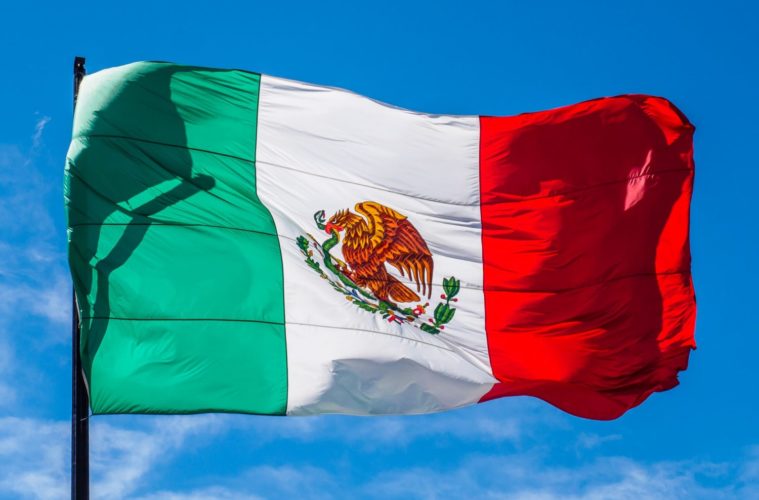On Wednesday evening, March 10, lawmakers in Mexico’s Chamber of Deputies voted to legalize recreational marijuana. The Senate will now hear the legislation next week.
The bill passed by a 316-to-129 vote, and comes two years after Mexico’s Supreme Court ruled the county’s ban on recreational weed was unconstitutional. But despite the long road to get to the vote, Mexican cannabis policy insiders expect things to move fast from here on out. Especially since the Senate leadership noted its intentions yesterday, a day after the Chamber’s vote.
So what does the bill do? It makes marijuana legal for adults to smoke and home-grow with some hoops. In addition, it sets the foundation for a Mexican industry expected to be the second-largest in North America once the continent’s marketplaces are online and settled. There will be varying levels of industry taking part in the production of cannabis, so in addition to corporate behemoths, you can expect some smaller operations too. This is similar to north of the border. As we always note, it’s harder for those little guys to be there, but some always pull it off.
Erick Ponce works in Mexico with ICan to connect patients and physicians with medical cannabis and the general resources they would need as they dip their toes into a legal medical market that’s only a couple of years old. Ponce is giving the bill a great chance to go as planned without any major hiccups.
“We applaud the commitment and will of the legislators and authorities that have taken this huge step in putting a stop to a prohibitionist ideology, one that criminalizes and stigmatizes patients and consumers alike,” Ponce told L.A. Weekly. “Mexico is one step closer to being on par on international expectations, and becoming the largest federally regulated cannabis market in the world.”
Jazmin Aguiar is president of The Working Group, received one of L.A.’s first cannabis social equity permits, and is deeply involved with the national conversations the Minority Cannabis Business Association is having. But another plate Aguiar has been spinning is consulting in Mexico in the years leading up to this vote.
“They’re still missing pieces to the legislation, and the Senate plans to make some of those changes,” Aguiar told L.A. Weekly. “Just legislatively, it’ll take some back and forth that can take up to six months.”
Aguiar admits it’s hard to quantify timelines given how things have gone so far. “The deadline was 120 days, as of last session.”
Aguiar is a seasoned cannabis professional who has had eyes on the market and the policy side for a long time. We asked her how she feels about the beef of the legislation. Aguiar prefaced it by noting she thinks it’s a monumental experience for anyone in the industry to take part in this process, but even more special for her.
“I’m Mexican American. I’m a binational citizen. So for me, being able to work in both countries and do what I love to do is definitely exciting,” Aguiar said. “I think that Mexico’s way to legalization is going to put a lot of pressure on the United States. And that’s going to open up a lot of doors for a lot of people here in the U.S. Being based out of California, I definitely come from a very attractive market to Mexico’s market, and I think that Mexico has always loved California when it comes to cannabis regulation and how that can develop.”
Aguiar thinks this makes it all very exciting if you’ve been on the forefront and have an extensive background of what is happening in California and now can adapt that knowledge into Mexico’s federal market.
“If you would have asked me this question 10 years ago, I would have said the U.S. [market] will be live before Mexico, but here we are and it’s exciting,” Aguiar said. “Because many times the United States overshadows any other country and I think Mexico legalizing on a federal level will give Mexico the opportunity to have that respect that has been lost through bureaucracy over the years. I’m interested to see how they handle this transition of the drug war.”
While in America we talk a lot about getting people out of prison or giving the communities where pot laws hit the hardest a shot in the industry, what are the conversations happening in Mexico around this kind of stuff?
“You know, that’s definitely one of my concerns. That equity isn’t a part of this conversation, just like it hasn’t been in the United States,” Aguiar replied. “There are a lot of disparities, especially in indigenous communities, specifically to women. Indigenous women who have participated in the illicit market who have been dragged by this drug war.”
While the bigger players in Mexico’s cannabis trade don’t tend to find their way to court, some of the women at the bottom of the pyramid weren’t always so lucky. Aguiar noted there is no mention of reparations. There is no mention of pathways to legalization for harmed Mexican communities.
“I think that is unfortunate, right? As legalization at a federal level is close, I am very concerned that equity isn’t part of this conversation. Are we talking about it? Yes, because, like the United States, I think is very difficult to try to amend things once they have passed,” Aguiar said. “So I think before it passes there has to be a lot of pressure on senators to include a pathway towards reparations, but I think we’re going to face the same challenges that we face here. How and where do you begin? What do those reparations look like?”
As for the future? “I definitely foresee there being a cultivation and production industry in Mexico with distribution in the United States, and I definitely advocate that.”
Advertising disclosure: We may receive compensation for some of the links in our stories. Thank you for supporting LA Weekly and our advertisers.

